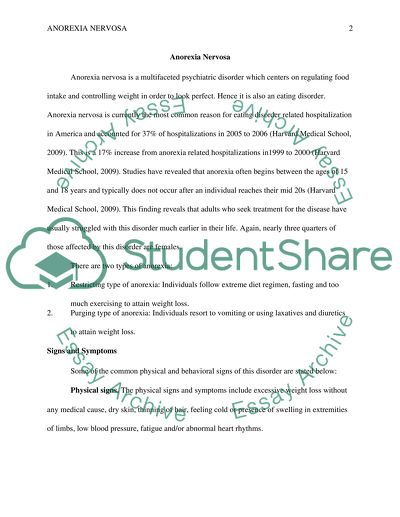Cite this document
(“Anorexia Nervosa Research Paper Example | Topics and Well Written Essays - 1500 words”, n.d.)
Retrieved from https://studentshare.org/psychology/1445619-anorexia-nervosa
Retrieved from https://studentshare.org/psychology/1445619-anorexia-nervosa
(Anorexia Nervosa Research Paper Example | Topics and Well Written Essays - 1500 Words)
https://studentshare.org/psychology/1445619-anorexia-nervosa.
https://studentshare.org/psychology/1445619-anorexia-nervosa.
“Anorexia Nervosa Research Paper Example | Topics and Well Written Essays - 1500 Words”, n.d. https://studentshare.org/psychology/1445619-anorexia-nervosa.


